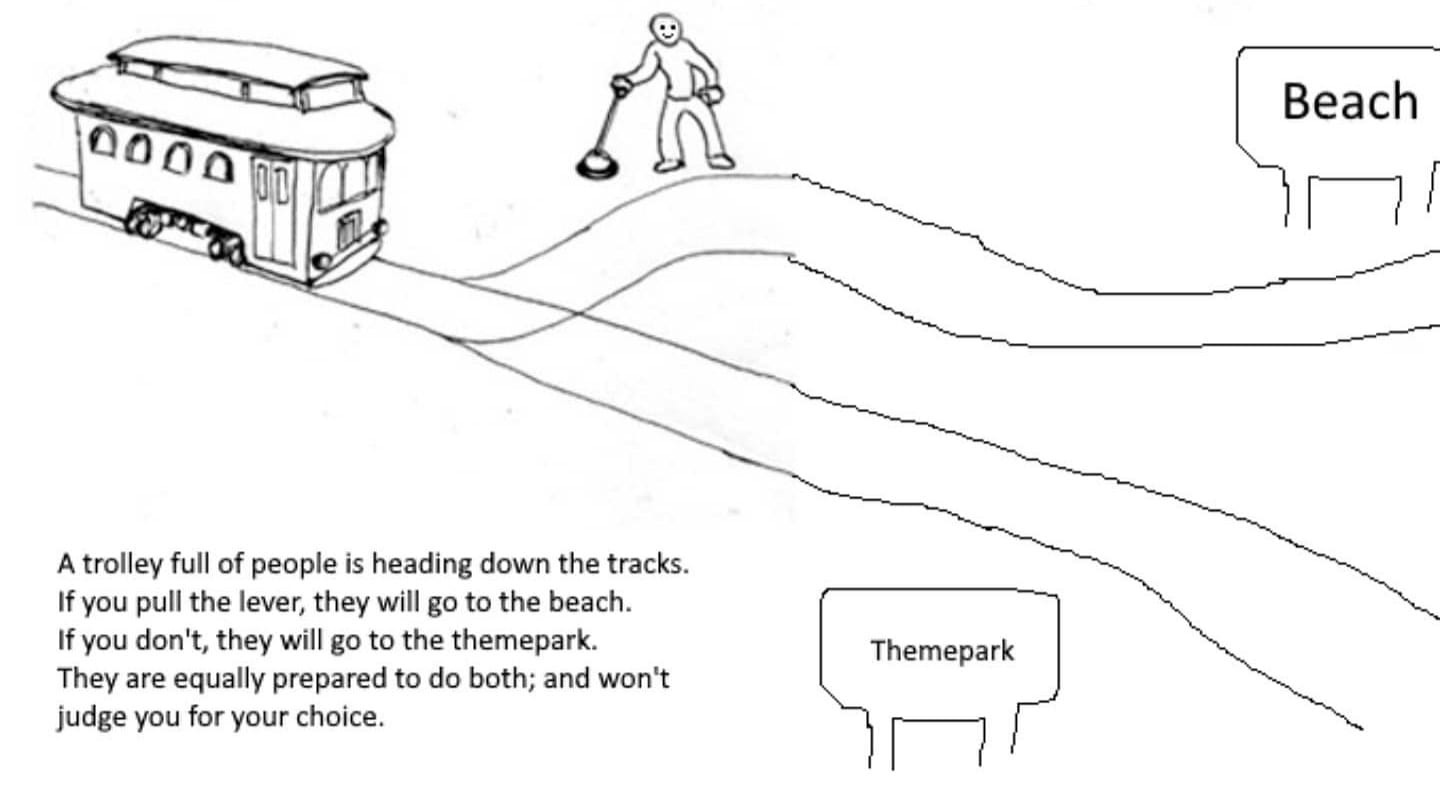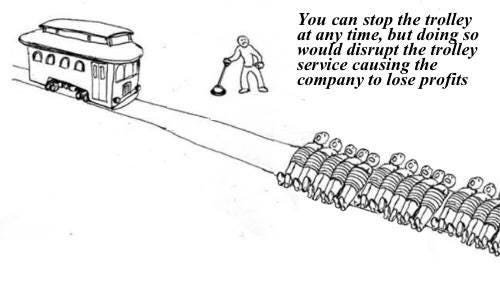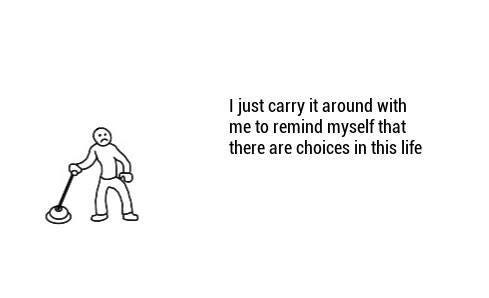Hey, Volts readers, guess what? Now you can be Volts listeners! If you would prefer to hear the post below read aloud, by me, just click play above.
And if you like having the posts read like this, let me know. If enough people are into it, I might see about getting some better equipment and actually learning how to edit a sound file.
Before we jump in, some housekeeping:
Remember, as of Jan. 1, free subscribers will receive one post a week. The other posts, and the ability to comment on posts and discussion threads, will be reserved for members (paid subscribers). I’m somewhat loath to do this — in my perfect world, it would all be free — but I need to, like, live. And buy dog food. So please join! We’re gonna have fun.
There are 20% subscription discounts for groups of four or more and students and educators. If you’re an educator who wants Volts access for your class or group, let me know and we’ll figure something out.
If you want to subscribe but can’t afford it right now, let me know and I’ll set you up. You can reply to this email and I’ll get it.
The Covid-relief/omnibus megabill, containing an enormous energy bill that I discussed last week? Trump signed it. It’s law! (I also discussed it with Matt Yglesias on the first Volts podcast.)
Anyway, on to business.
Today I’m going to do something a little different. It might seem like an odd digression into philosophy and ethics, but it comes back around to politics. In fact, it explains my core political orientation about as well as anything can.
I’m going to explain why I hate the Trolley Problem.
The Trolley Problem and its variants
The Trolley Problem is a famous “thought experiment” in ethics. It traces back to philosopher Philippa Foot, who first wrote about it in 1967, but in the years since there have been dozens upon dozens of variations, in both the philosophical literature and the popular press.
You’ve probably heard some version. The most basic goes like this: There’s an out-of-control railcar hurtling toward five people who are tied to the track. You’re next to a switch that could divert the car to another track, but on that track is a single worker who would be killed if you do. What do you do?
Variations are endless. What if the person on track two is your son? What if the choice is between five people you know to be murderers and one good person? What if the choice were made from a switch house where you couldn’t see any of the people?
The point of these thought experiments is to probe your intuitions and principles. Is it better to do nothing and allow five deaths or to take affirmative action that leads to one death? Does the difference between acting and refraining from acting matter? Does the number of lives matter? Etc.
The recent development of autonomous vehicles has brought the Trolly Problem back into popular consciousness yet again. If robots are going to be driving, how will they make these decisions? Will they be utilitarians, maximizing the number of lives saved at every juncture, or Kantians, refusing to knowingly sacrifice one life for another? Presumably however we program them. So maybe we have to decide after all.
The Trolley Problem served as the basis for a fan-favorite sequence on the show The Good Place:
And of course, times being what they are, it has inspired all manner of memes.
Despite its enduring appeal, the Trolley Problem is Bad. It is misleading about moral decision making and, more importantly, misleading about how to improve moral decision making.
It’s not moral principles but moral agents that matter most
Some of you know that I spent several years in the late 1990s getting an MA in philosophy and then starting on (but not finishing) a PhD. Anyone who studied analytic philosophy — as I did, at least at first — has spent lots of time with thought experiments.
I spent a semester reading the pinnacle of pure intellectual gymnastics, Derek Parfit’s Reasons and Persons, which is full of thought experiments moral, epistemic, metaphysical, and otherwise. The book is revered in the field, considered one of the great philosophical works of the 20th century, and it completely turned me off. It’s one of many things that led me away from philosophy entirely.
As the Trolley Problem is structured, you, the moral agent, have an utter paucity of knowledge about the situation. You don’t know why you’re there, any of the people involved, any history, any detail. All you know is, one life or five lives.
The problem is designed to make the agent (the decider) invisible, to isolate the decision itself away from embedded, embodied experience. Which is fine, if you’re just having a think. But discussing the ideal ranking of moral principles is like discussing Kant’s noumena, the thing-in-itself. No human can directly perceive it and wouldn’t know if they had, so there’s an angels-on-the-head-of-a-pin aspect to it.
All we have are the perceptual and analytic tools available to us, so we should focus on improving them. If you want trolley-style decisions made better in the real world, in real societies, you’re much better off focusing on agents than on any set of final principles.
How to be a good trolley decider
Consider if you ended up in the Trolley Problem in real life. How would you make a good decision in that situation?
Ideally, you would be coming to it with a history; you’d know how you got there and something about how situation developed, who the other people are, why they hell they’re tied to the track, etc. You’d have a good sense of how fast the railcar is traveling and the force necessary to stop it. You’d have a good sense of the chances of success of various options: flagging down the car or the man working on the tracks, finding something to throw on the tracks, jumping on the track yourself. You’d know whether the people tied to the track are real or dummies, whether you’re being tricked.
You’d also need the ability to make a quick decision in extremely difficult circumstances. You couldn’t let your fear or over-analysis paralyze you (as happens to Chidi in Good Place). You’d need the ability to keep your cool, to maintain some emotional distance from the situation, to rapidly consider the options from different perspectives, to notice if there are other non-obvious alternatives.
You’d need to be alert, well-rested, well-fed, not distracted, attuned to circumstances — what the man on the tracks is doing, how securely the other people are attached to the tracks, whether the ground and tracks are wet and slippery, the speed of the railcar, the age of the equipment, etc. And finally, you would need to be motivated to do the right thing.
To make the best possible decision, you would need to be perfectly informed, acting based on prosocial motivations and a perfect temperament, in control of yourself and thinking with perfect clarity.
In other words, what we’d want operating in a real-world case of the Trolley Problem is not the perfect set of principles, but the perfect moral agent — the best possible decision-maker.
That’s my answer to the Trolley Problem and all similar thought experiments: the right decision is whatever decision the best possible moral decision-maker would make in the situation.
Of course, there is no such moral superagent. No one in this world, making real decisions in real circumstances, has a perfect temperament or is ever perfectly informed or thinking with perfect clarity. The default, in fact, is harried people making thoughtless decisions based on crude heuristics and mental models.
But the crucial point is that we can be better or worse decision-makers, closer or farther away from the ideal described above, and we have a pretty good idea what it takes to help people get closer. (More on that below.)
One thing that doesn’t seem to help is a well-developed set of ethical principles. A 2014 research paper surveyed the empirical evidence collected by studies of various moral behaviors and found “no statistically detectable difference between the behavior of ethicists and non-ethicists.”
In any real-world situation, good decision-making is enabled less by abstract principles than by temperament and discernment, i.e., self-possession and wisdom. The person who takes in the most information, can see the situation through the appropriate lens, and can act on priorities amidst pressure and uncertainty will likely make the best decision.
Whether we’re seeking better real-world outcomes (as I am) or seeking better answers to longstanding moral questions (as the Trolley Problem is), the right strategy is the same: get help. Try to make society fertile for the development of better moral agents. They will have better answers than we do.
How to encourage the growth of better moral agents
In his seminal 2011 book Thinking, Fast and Slow, Princeton psychologist Daniel Kahneman made a distinction between system 1 (S1) thinking and system 2 (S2) thinking.
Kahneman describes S1 as “fast, automatic, frequent, emotional, stereotypic, and unconscious” — what are more colloquially known as “gut reactions.”
S2 is “slow, effortful, infrequent, logical, calculating, and conscious,” closer to what we tend to conceive of as thinking — taking a step back, slowing down, consciously assessing and reasoning.
Very crudely speaking, you can think of S1 engaging the amygdala, the brain’s basic pleasure/pain, attraction/revulsion centers, and S2 engaging the frontal cortex, the centers of symbol manipulation, self-reflection, and conscious calculation.
The amygdala is prior to the frontal cortex, both evolutionarily speaking and in biological priority. Long-term thinking requires a basic level of safety, an S1 system quiet enough to let S2 work. The more threat looms, the more we, like all biological creatures, prioritize the immediate security of our bodies, our families, our tribes, our borders.
We know that stress and privation make S2 thinking more difficult. For a superb introduction to this work, listen to Ezra Klein’s podcast interview with Robert Sapolsky, a Stanford neuroscientist and primatologist who has studied the intersection of stress and poverty. (Seriously, take an hour, it will change how you think.)
Sapolsky’s work is varied and fascinating, but the recurring theme is that, in modern human societies, it’s expensive to be poor — cognitively, emotionally, and physically. Poverty, hunger, and social marginalization lead to stress, exhaustion, anxiety, and ill health.
Stress is a biological emergency reaction, an elevated heart rate and flood of hormones designed for short-term anticipatory threat response. But it is now experienced as a constant background state in response to chronic threats that have no immediate solutions, to corrosive long-term effect. Sapolsky calls being on the lower end of America’s social and economic totem pole a “psychic sledgehammer.” Under those blows, it is difficult to undertake the “slow, effortful” cognitive processes necessary for long-term plans or Olympian moral decision-making.
And our vulnerability to circumstance traces all the way back to before our birth. Stress hormones and nutrition in pregnant mothers shape the neural pathways of the fetus in the womb. The crucial weeks, months, and years after birth shape basic neural and hormonal response patterns that persist for life.
(I once wrote a long article on the centrality of luck to human life. It’s a good one!)
From the womb on, everywhere is the same basic pattern: insofar as a person feels safe and nurtured, they can more easily develop higher order and longer term thinking. Conversely, hunger, stress, and privation cause heightened threat response and a shrinking of horizons. That’s true whether it’s a fetus bathed in stress hormones or an adult marginalized in a society with low trust.
Life is composed of dozens of small decisions every day, decisions in which conflicting interests and principles must be resolved, long-term benefits, personal and social, weighed against short-term desires. To maximize the net welfare of society, which ought to be our goal, we need to improve those decisions, incrementally, at the margins, bit by bit.
We do that by creating better moral agents, which we know how to do. We make sure that everyone has their basic needs cared for; that every family expecting a baby receives prenatal care and basic childcare training; that every family with a new child receives time off from work and regular nurse visits; that every child has access to quality public education, from pre-school through college; and that every adult receives adequate health care and housing. We create a compassionate, law-bound society that incentivizes prosocial behaviors. These are the kinds of things that create the necessary foundation for widespread S2 thinking.
Progressivism is about bringing more of humanity into service
And this, at a fundamental level, is why I’m a progressive. It’s not that I think I’ve figured out the perfect society or the correct way to live. It’s that I believe we can get better at it — better at living, better at society, better at peace and equitable, sustainable prosperity.
The best way to improve is to recruit as much help as possible, to get the maximum number of minds and hearts involved. The more we lift people up out of poverty, precarity, discrimination, and stress, the more we unleash their minds on longer term problems and non-zero-sum, cooperative solutions.
The more minds we have applying themselves to our collective trolley problems, the more likely we are to get good answers.
The Trolley Problem attempts to isolate moral intuitions from the messiness of human experience, but integrating those intuitions and principles into human practice is the whole ballgame. It’s what matters. Being good, acting for the greatest good of humanity and the biosphere, is a practical skill, not a fixed body of knowledge or set of rules. It’s something we do together, not as isolated moral agents next to rail switches. And it’s difficult. It involves building and defending a complex social and economic infrastructure. We accomplish it, if at all, by paying closer attention to human experience, not abstracting away from it.
Thinking about philosophy led me out of philosophy
Over the course of his career, one of my favorite philosophers, Richard Rorty, basically thought his way out of philosophy. He started in analytic philosophy, moved to American pragmatism, and ended up doing something like social and political commentary.
I won’t try to summarize or speak for Rorty, who is a towering and complicated figure, but my intellectual arc was, in its own modest way, more or less the same.
What philosophical pragmatism captures is that, whether it’s ethics, metaphysics, consciousness, or personal identity, Ultimate Truth doesn’t and can’t matter to us. We can’t experience it directly. We wouldn’t know for certain if we had. All we can experience is one another and our endlessly varying, conflicting ideas about the right perspectives and frames through which to view evidence and events. Our only real metric for comparison is which perspectives and frames work better to navigate the world (“work better” being the heart of pragmatism). No god or revelation is going to come along and settle those endless arguments.
The real work is just figuring out how we can live together in something approximating peace and harmony, how we can improve our collective circumstances even in light of our inescapable differences. Abstract thought experiments can’t answer those questions; they are questions of practice, of incremental improvement, the strong and slow boring of hard boards.
I like to think that what I’m doing today is, in some small way, engaging with those real-world problems, helping to bore the boards. It is immeasurably more satisfying than sitting in a room contemplating imaginary dilemmas.
The only trolleys I care about these days are the ones that serve transit-oriented development.
Thanks for reading this far, y’all! That was long and nerdy. You deserve some dogs.
Here’s Forest, majestically/goofily surveying his grandfather’s back yard.
And here is Mabel engaged in her new favorite activity: staring contemplatively into the fire.

























Share this post